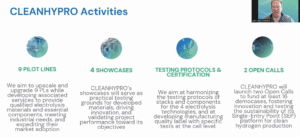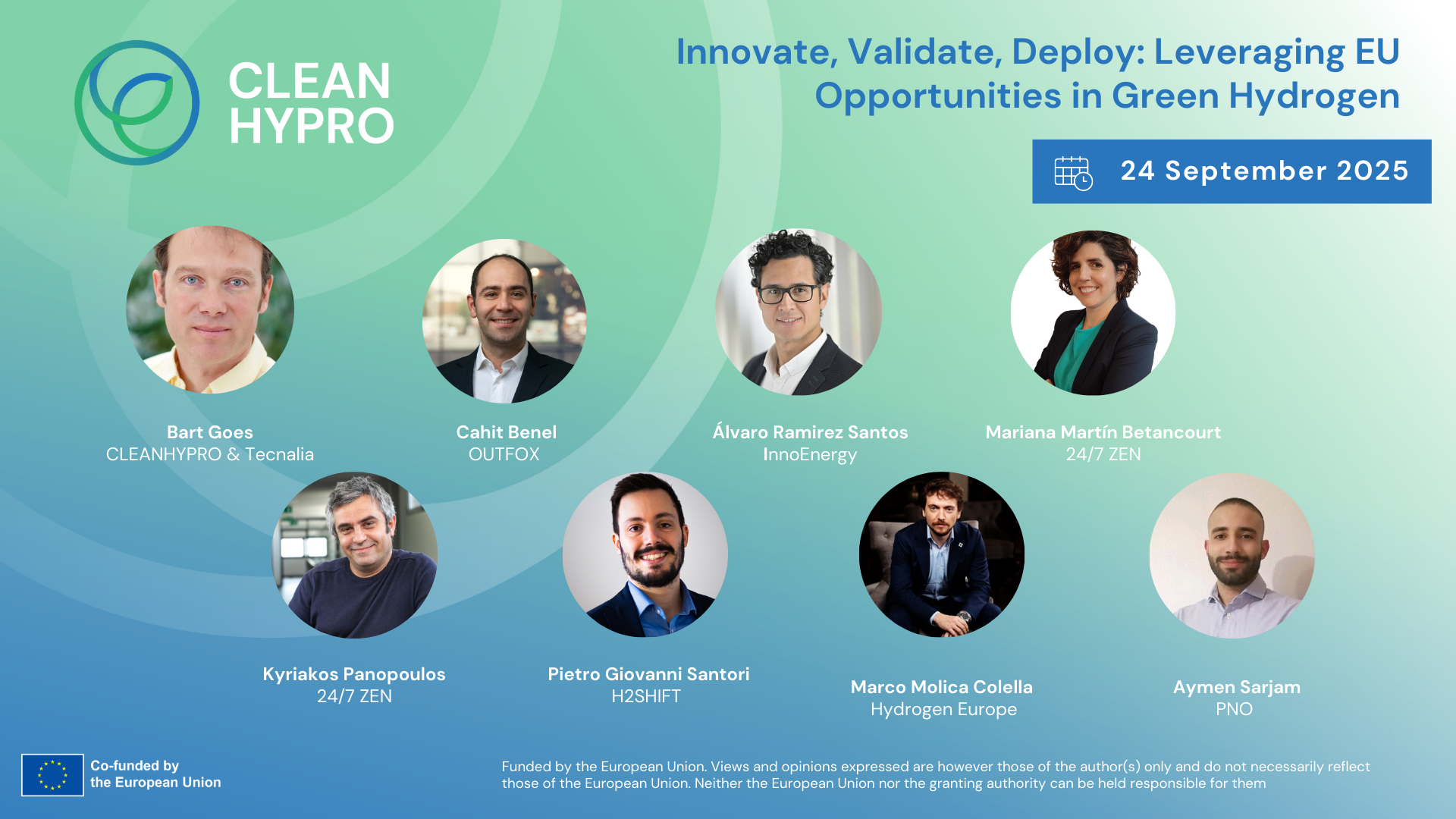The CLEANHYPRO project successfully hosted its online workshop, “Innovate, Validate, Deploy: Leveraging EU Opportunities in Green Hydrogen,” on 24th September 2025. The event attracted more than 70 registrations and 45 active participants, highlighting the significant interest in the future of clean hydrogen.
The workshop brought together a panel of experts from four key EU-funded projects—CLEANHYPRO, H2SHIFT, OUTFOX, and 24/7 ZEN—to share their insights and foster collaboration. The discussions, moderated by Raquel Amaral (F6S), provided a clear picture of the hydrogen ecosystem in Europe.
Key Highlights from the Discussion:
- Project Objectives and Outcomes: The event provided a clear overview of the CLEANHYPRO project, outlining its core objectives, timeline, and expected outcomes, which include the development of nine Pilot Lines and two Open Calls.
- EU Policy Alignment: Speakers emphasised the importance of aligning with key EU policies, particularly the European Green Deal, to drive innovation and ensure a sustainable hydrogen economy.
- Open Innovation Test Bed (OITB): The role of OITBs was a central theme, with a focus on how they provide direct access to manufacturing, testing, and certification services to help projects (especially SMEs) accelerate their development and reach the market.
- Upcoming Open Calls: A key takeaway from the event was the announcement of the upcoming Open Calls for Democases. These calls will offer a unique opportunity for industry players to access the project’s state-of-the-art facilities and services.
The engagement from participants, including interactive polls and a dedicated Q&A session, underscored the value of this collaborative approach.

Missed the workshop? You can now watch the full recording of the event on our YouTube channel.
Funded by the European Union. Views and opinions expressed are however those of the author(s) only and do not necessarily reflect those of the European Union or the European Education and Culture Executive Agency (EACEA). Neither the European Union nor EACEA can be held responsible for them.
